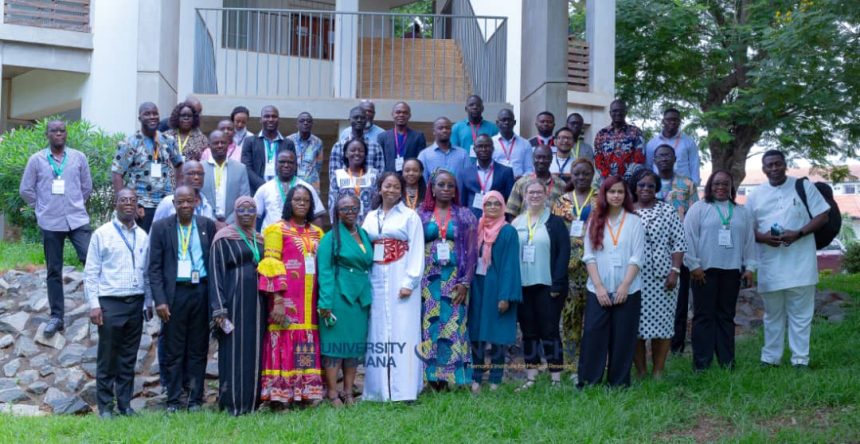The Noguchi Memorial Institute for Medical Research (NMIMR) at the University of Ghana recentedly hosted the opening ceremony for a Disease Elimination and Eradication course.
This course, organized under the auspices of the Global Institute for Disease Elimination (GLIDE) and in partnership with the Carter Center and the University of Global Health Equity, aims to provide participants with insights into infectious disease eradication through innovative research, strategic partnerships, and effective implementation methods.
The current cohort consists of 31 participants from seven teams representing nine countries, with Pakistan being the only country outside of Africa. Previously held only in Abu Dhabi, the course is now being conducted in Ghana at the Noguchi Memorial Institute and in Rwanda.
During the opening ceremony, Director of NMIMR, Prof. Dorothy Yeboah-Manu, highlighted the background of how NMIMR was selected for the course and described the institute’s role in the collaboration.
“The institute was approached by the Global Institute for Disease Elimination to conduct this training program. I then asked the head of epidemiology to mediate, which he did well. He has been to Abu Dhabi, as the course was initially hosted there. Now they want to include African countries, so it is being held in Ghana and Rwanda, with Ghana’s sessions at Noguchi. Noguchi provides facilitators like Professor Boakye and Professor Ahorlu, who have both been to Abu Dhabi. Based on the work we do in disease eradication and elimination, we have qualified facilitators.”
In an exclusive interview, the technical director of GLIDE, Dr. Ngozi Erondu expressed her excitement about the collaboration with Noguchi and emphasized the course’s objectives.
“We are pleased to be here in Ghana at the Noguchi Institute to host the Disease Elimination and Eradication course. This is our third year doing this, in partnership with the Noguchi Institute and the Carter Center. The course aims to equip program managers working in neglected tropical diseases and malaria with the skills, knowledge, and information necessary for disease elimination and eradication. Many participants have long worked in these fields but have never thoroughly examined the obstacles and facilitators to eliminating disease.”
Social epidemiologist at NMIMR, Prof. Collins Ahorlu underscored the course’s relevance.
“The course is very integrated and prepares disease elimination program managers and workers to think systemically, not just focusing on disease-specific programs but considering the interconnected relationships within the program and other activities.”
The Disease Elimination and Eradication course is funded by the Global Institute for Disease Elimination (GLIDE).
–
Story by: Abdul Wahab | univers.ug.edu.gh

